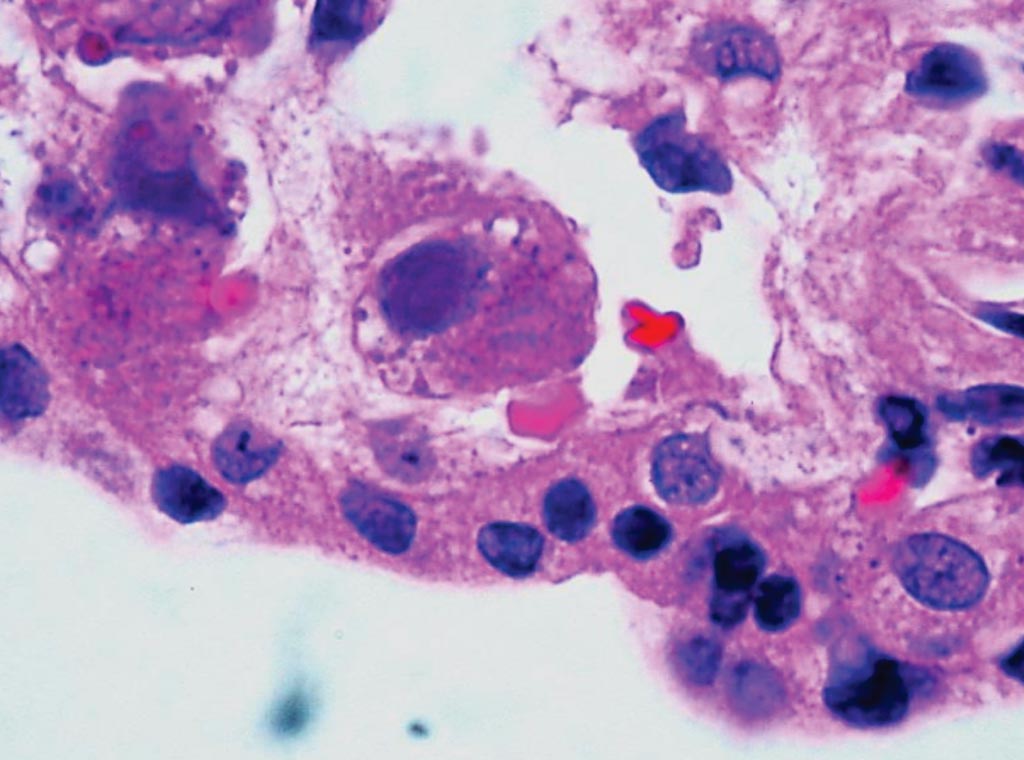Newborn Screening for CMV Remains Controversial
By LabMedica International staff writers
Posted on 03 May 2017
Cytomegalovirus (CMV) is the most common infectious cause of congenital sensorineural hearing loss, which leads to speech and language delay and the virus also causes microcephaly, developmental disability, and vision abnormalities.Posted on 03 May 2017
Because early detection is key to giving affected children the healthiest possible start in life and studies have shown that an antiviral drug may improve outcomes, and many hearing loss experts would like to see routine CMV screening added to state newborn screening panels.

Image: A histopathology of Cytomegalovirus (CMV) Placentitis (Photo courtesy of Dr. Ed Uthman).
Scientists at the University of Utah determined that the percentage of infants who failed newborn hearing screenings and subsequently underwent diagnostic CMV evaluations went up by 21% after the screening program took effect. Another investigation conducted by the CMV and Hearing Multicenter Screening (CHIMES) study examined the effectiveness of using targeted CMV screening to identify infected babies. Out of a pool of nearly 100,000 infants, scientists using this targeted approach were able to identify nearly 60% of those who had CMV-related hearing loss, although it did miss a fair number of neonates with hearing loss as well as infants at risk for late-onset hearing loss.
Yet the prospect of CMV newborn screening remains controversial. Despite studies deeming it cost-effective and studies linking antiviral treatment to better outcomes, some hearing loss experts say that current targeted screening programs miss many asymptomatic infants, while no studies show antiviral drugs improve longer-term hearing outcomes in either symptomatic or non-symptomatic babies. The Centers for Disease Control and Prevention recommends polymerase chain reaction (PCR) testing of saliva as the standard diagnostic test for congenital CMV, providing a high-throughput method of detecting the virus.
One of the outstanding issues is that most newborn screening tests look for genetic conditions and are performed on dried bloodspots, and therefore the laboratories would need new infrastructures to collect and test saliva or urine. These specimens currently make better samples than blood because more virus is shed in them. CHIMES investigators identified only 30% of infected children through bloodspots, but investigators at CDC are comparing newer, more sensitive bloodspot methods to saliva-based methods in 30,000 newborns at several area hospitals.
Suresh Boppana, MD, a professor of pediatrics, said, “Testing for congenital CMV is readily available, simple, and relatively inexpensive. We should do targeted screening now with the goal of implementing universal screening in the near future.” The study was published on April 20, 2017, in the journal Clinical Laboratory News.










 Analyzer.jpg)



